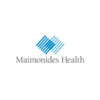
Clinical Trial of Solriamfetol for Excessive Sleepiness Related to Shift Work Disorder
Excessive SleepinessShift-work DisorderIn this research study the investigators want to learn more about whether the medication Solriamfetol improves daytime sleepiness in workers who start work at very early times (between 3 and 6am).

A Study to Assess the Efficacy and Safety of AXS-12 (Reboxetine) in Patients With Narcolepsy
NarcolepsyCataplexy1 moreThis study is a multi-center, double-blind, placebo-controlled, randomized Phase 3 trial to assess the safety and efficacy of AXS-12 in narcoleptic subjects with cataplexy and excessive daytime sleepiness (EDS).

A Study to Investigate the Effect of XYWAV on Sleepiness, Polysomnography, and Functional Outcomes...
Idiopathic HypersomniaNarcolepsyThis study will assess the safety and efficacy of JZP258 (XYWAV) on sleepiness, polysomnography, and functional outcomes in patients with idiopathic hypersomnia (IH) or narcolepsy.

Placebo-Controlled, Double-Blind, Study to Determine the Safety and Efficacy of SDX in Patients...
Idiopathic HypersomniaThis is a study of the safety, efficacy and pharmacokinetics (PK) of Serdexmethylphenidate (SDX) compared to placebo in subjects with Idiopathic Hypersomnia (IH).

A Study of TAK-861 for the Treatment of Selected Central Hypersomnia Conditions
Narcolepsy Type 1Narcolepsy Type 2The main aim is to evaluate the safety and tolerability of TAK-861 on participants with type 1 and type 2 narcolepsy from previous parent studies, TAK-861-2001 (NCT05687903) and TAK-861-2002 (NCT05687916).

Impact of Bright Light Therapy on Prader-Willi Syndrome
Prader-Willi SyndromeExcessive Daytime Sleepiness4 moreThis is a placebo controlled clinical trial to assess the utility of light therapy as a sufficient treatment for excessive daytime sleepiness in patients with Prader-Willi Syndrome

Low Sodium Oxybate in Patients With Idiopathic Hypersomnia
Idiopathic HypersomniaLow sodium oxybate has been approved by the U.S. Food and Drug Administration (FDA) for the treatment of idiopathic hypersomnia. In this study, the researchers want to learn how low sodium oxybate impacts ability of people diagnosed with idiopathic hypersomnia to sleep for long periods of time. In addition, this study will use novel tools to determine when an individual is awake or asleep.

A Study to Assess the Long-term Efficacy and Safety of AXS-12 (Reboxetine) in Subjects With Narcolepsy...
NarcolepsyCataplexy1 moreThis study will evaluate the long-term efficacy and safety of AXS-12 in narcoleptic subjects with cataplexy and excessive daytime sleepiness (EDS).

Voice Biomarkers to Predict Excessive Daytime Sleepiness
Sleep DeprivationThis study aims at measuring the impact of a night of sleep deprivation over the vocal characteristics of healthy subjects.To do so, the subjects takes a Multiple Sleep Latency Test (MSLT) the day after a night of total sleep deprivation (or a supervised normal night for the control subjects). Before each iteration of the MSLT, the subjects are recorded during the reading of a text and fill three medical questionnaires : Karolinska Sleepiness Scale (KSS), Visual Analogue Scale for Fatigue (VAS-F) and Visual Analogue Scale for Anxiety (VAS-A), allowing to link variations of vocal markers to the variations of these measures.

Clarithromycin Mechanisms in Hypersomnia Syndromes
Narcolepsy Without CataplexyIdiopathic Hypersomnia1 moreThe purpose of this study is to evaluate a medication called clarithromycin for treating sleepiness in narcolepsy and idiopathic hypersomnia. Studies have shown that clarithromycin can reduce sleepiness, but researchers do not know how clarithromycin does this. This study will look at brain activity (on magnetic resonance imaging [MRI]), inflammation, bacteria living in the gut, and cerebrospinal fluid, to better understand how clarithromycin can reduce sleepiness. This study will recruit 92 participants who will be randomized to receive clarithromycin or a placebo for 14 days.
